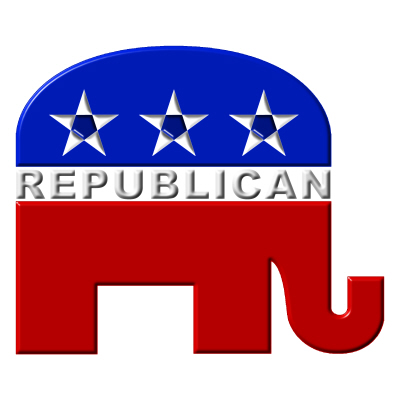Staff Writer
While I’ve been trying to keep up with all the news coming out of Washington lately, I’ve been especially keen on keeping track of the latest stories covering the cast of Republicans who’ve stayed in the media spotlight amidst the slew of other important political happenings. At the risk of sounding extremely clichÈ, I have to say nothing captures the GOP’s apparent paradigm shift in strategy better than the timeless words of Bob Dylan. Indeed, for the Republican Party, “The Times They are A-changin’.”
The reason why this reference is so overused by angsty youths like myself is because the song’s message continues to be so relevant during times of considerable social change in American politics. At the age of 70, Dylan was invited to the White House to harp on the same statement he made in 1964 about a vivacious social movement that remains nameless in the song. Back then, it described the Civil Rights Movement, today the song applies to the reformation in social policy occurring within the GOP, especially on issues such as immigration and gay rights.
The 2016 Republican primary is already shaping up to be a transformative process, regardless of which candidate is finally chosen. For the current Republican hopefuls this means they have to navigate the shifting tides within the Party without alienating the conservative base, but they also try to speak to a vital change in social policy that will inevitably challenge the traditional values on which past conservative stances have relied.
Rand Paul recently jumped onto the shortlist of viable 2016 candidates, joining Rubio and Christie. After his 13-hour filibuster a few weeks ago he went on to win the CPAC presidential candidate straw poll. Marco Rubio finished just a few points behind Paul, but their two speeches during the event conveyed a growing ideological rift. Based on defending states’ rights, Rubio re-affirmed his commitment to the anti-gay marriage sentiment rooted at the base of the Party, while Paul attempted to appeal to the “Facebook generation” by abandoning policies defended by “the GOP of old [who have] grown stale and moss-covered.” He said he “[didn’t] need to name, names,” but he was clearly referring to John McCain, who recently called Paul one of the “wacko birds” in the Senate. Paul also advocated for the “new GOP” to embrace “liberty in the economic and personal sphere,” explicitly supporting legalization of marijuana and implicitly indicating potential support for gay marriage.
In 2012, the contradictory interests Romney supported, trying to win support from both the conservative base and undecided voters, brought down his campaign, and since then mainstream conservatives like Marco Rubio have been trying to bridge the same gap.
As a Libertarian, Paul rests his case for pivoting Republican policy on the defense of individual liberty, and his agenda might represent a compromise in itself as long as it’s not too radical for both ends of the conservative spectrum to stomach.
This week Rand Paul made inroads on the immigration issue Rubio has been addressing for a while, calling for an overhaul that offers a “path to citizenship” for undocumented immigrants. This was a bold move for Paul since the question of immigration policy represents a daunting choice considering the Party’s need to claim more of the Hispanic vote but also the risk of hurting their odds if those new citizens vote democratically.
For now I’m going to heed Dylan’s warning; “don’t speak too soon for the wheel’s still in spin, and there’s no tellin’ who that it’s namin’.” I think this is appropriate since it seems impossible to tell how the results of these internal policy debates will manifest themselves in the 2016 GOP presidential pick. But everyone agrees on one thing: a Republican victory in the general election depends on a significant change in the Party’s strategy moving forward.
Questions? Email Doug at dadair@fandm.edu.
